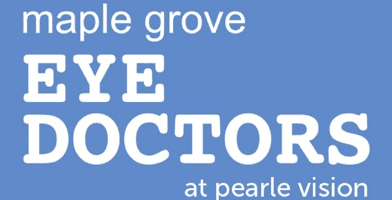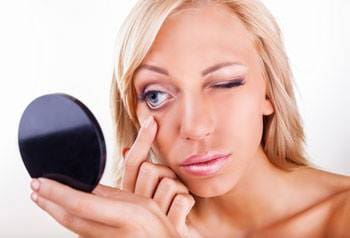Age-related macular degeneration (AMD) is a very serious eye condition that can threaten your vision and overall health. The disease affects the macula within the retina and central vision, gradually reducing your vision and minimizing your ability to read, drive, recognize faces, and more. AMD is a leading cause of vision loss among senior citizens.
In short, AMD is an eye disease that causes vision loss.
Macular degeneration causes loss in the center of the field of vision. In dry macular degeneration, the center of the retina deteriorates. The exact cause of dry macular degeneration is not yet fully understood, but it is believed to be a combination of several genetic and environmental factors. With wet macular degeneration, also known as neovascular AMD, leaky blood vessels grow under the retina. It is a more severe and less common form of the condition.
Blurred vision is a key symptom. Some people may experience partial loss of vision, abnormality where straight lines appear wavy, blurred vision, distorted vision, and inability to see in dim light or seeing spots. Wet macular degeneration causes rapid and significant damage to the macula as well as sudden and severe vision loss. The symptoms may include increased sensitivity to bright lights, wavy central vision, dark areas in the center of the visual field, and rapid onset of visual impairment. While the exact causes of macular degeneration are still being studied, increasing age, family history, smoking, obesity, sun exposure, and cardiovascular diseases significantly add to the risk.
A combination of vitamins and minerals (AREDS formula) may reduce disease progression. Surgery may also be an option.
More than 200,000 US cases per year
Here are several tips from our team of eye care professionals about preventing macular degeneration:
Familiarize yourself with your family history – we know this can be tricky, but it is important!
Your family’s medical history will be valuable to preventing macular degeneration. You are at a higher risk of developing age-related macular degeneration if one of your primary relatives has had it. When you have a family history of AMD, it is imperative to take the necessary preventative measures to reduce your own risk of developing the condition. Plus, you need to be vigilant in recognizing and managing potential symptoms.
Stop Smoking now!
If you smoke, it is time to quit. If you don’t smoke, it is important to never start and avoid exposure to secondhand smoke as much as you can. Smoking can double your chances of developing macular degeneration. It exposes you to a variety of dangerous chemicals and free radicals, all of which can cause damage to the cells and prevent essential nutrients from getting to the retina.
Greens, and more greens, eat them as often as you are able.
Leafy greens like kale and spinach are loaded with vitamins and antioxidants. Other foods to add to your diet include those that are rich in lutein and zeaxanthin, such as egg yolk, orange/ yellow peppers, broccoli, squash, grapes, and kiwi. Colorful fruits such as oranges and berries, as well as nuts and seeds, are also good for the eyes. Don’t forget to add fatty fish like tuna, salmon, and mackerel. These foods are rich in omega-3 fatty acids, lutein, zinc, and vitamins C and E, which are essential for protecting your body against free radical-related cellular damage, often associated with several eye diseases, including macular degeneration.
Overall, a healthy diet that includes plenty of fresh fruits, dark green vegetables, and non-veg sources of vision-friendly foods will minimize your chances of developing macular degeneration.
Exercise regularly
Engaging in regular physical activity benefits your overall health and can have a positive impact on your eye health as well. Studies suggest that exercising regularly can improve blood flow to the eyes, reduce the risk of developing macular degeneration, and slow its progression in those who already have the condition. So, aim for at least 30 minutes of moderate-intensity exercise, such as brisk walking, cycling, or swimming, on most days of the week.
Of course, wear quality sunglasses! We all know that, right?
When you head outside, you need to protect your eyes from UV ray damage. Extended exposure to the sun can cause damage to the retina and can significantly contribute to the development of macular degeneration. Hence, it is recommended to wear a pair of sunglasses that are equipped with the UV 400 label. Additionally, consider wearing a wide-brimmed hat when you are out in the sun to provide additional shade and reduce the exposure of your eyes to harmful UV radiation.
Do not forget to schedule your eye examinations.
Routine eye exams are essential for detecting any early signs of age-related macular degeneration or other eye conditions before they have a chance to develop or worsen. Visit your eye care professional regularly, especially if you have a family history of macular degeneration or if you are above the age of 50. Early detection and prompt treatment can significantly improve the prognosis and outcomes of macular degeneration.
While you cannot completely prevent macular degeneration, adopting these healthy habits and lifestyle choices can significantly reduce your risk and preserve your vision. A nutritious diet, avoiding smoking and exposure to secondhand smoke, protecting your eyes from UV rays, and engaging in regular exercise are all proactive steps you can take to maintain healthy eyes and decrease your chances of developing macular degeneration.
Contact us at Maple Grove Eye Doctors to schedule an appointment with a professional optometrist. We will perform a full eye assessment and work with you to identify the best possible vision treatment. Call us at 763-416-0622 for more information or to schedule an appointment with one of our Eye Doctors!






